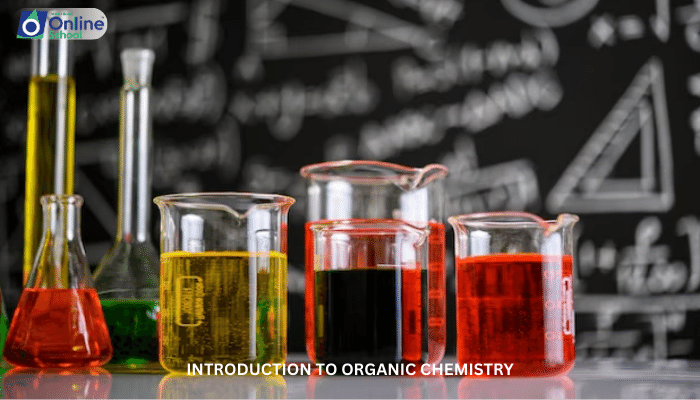
Learning Outcomes:
i. Define organic chemistry and organic compounds.
ii. Recognize the unique properties of carbon that make it the central element of organic chemistry.
iii. Explain the concept of covalent bonding and its role in the formation of organic compounds.
iv. Identify the four main classes of organic compounds: hydrocarbons, alkanes, alkenes, and alkynes.
v. Appreciate the significance of organic chemistry in various fields, including medicine, pharmaceuticals, and materials science.
Introduction
Organic chemistry is a fascinating and dynamic branch of science that delves into the study of carbon-based compounds. It encompasses a vast array of substances, from the simplest hydrocarbons to the complex molecules that form the basis of life. In this introductory lesson, we will embark on a journey into the world of organic chemistry, exploring its fundamental concepts and the unique properties that make carbon the central element of this intriguing field.
i. Carbon: The Building Block of Organic Chemistry
The element carbon stands as the cornerstone of organic chemistry, due to its remarkable ability to form diverse and stable bonds with other atoms, particularly hydrogen, oxygen, and nitrogen. This versatility stems from carbon's electronic configuration, which allows it to share electrons to form covalent bonds. Covalent bonding, the sharing of electrons between atoms, is the hallmark of organic chemistry and is responsible for the vast array of organic compounds that exist.
ii. Hydrocarbons: The Simplest Organic Compounds
Hydrocarbons, the simplest organic compounds, consist solely of carbon and hydrogen atoms. They form the foundation of many other organic compounds and exhibit a wide range of properties, from the gaseous methane (CH4) to the waxy solid polyethylene (C2H4)n.
iii. Alkanes, Alkenes, and Alkynes: The Main Classes of Hydrocarbons
Hydrocarbons are classified into three main groups based on the type of carbon-carbon bonds they contain:
Alkanes: Alkanes are saturated hydrocarbons with only single bonds between carbon atoms. They are generally unreactive and form the basis of many natural fuels, such as natural gas and propane.
Alkenes: Alkenes contain at least one double bond between carbon atoms. This double bond introduces reactivity and allows alkenes to undergo various reactions, such as addition reactions.
Alkynes: Alkynes contain at least one triple bond between carbon atoms. The triple bond makes alkynes even more reactive than alkenes and enables them to participate in a variety of chemical transformations.
iv. The Significance of Organic Chemistry
Organic chemistry plays a pivotal role in various fields, shaping our world in countless ways:
Medicine and Pharmaceuticals: Organic chemistry has revolutionized medicine by providing the foundation for the development of drugs, antibiotics, and other therapeutic agents.
Materials Science: Organic chemistry has led to the creation of synthetic polymers, plastics, and other advanced materials that are essential for modern technologies.
Agriculture and Food Science: Organic chemistry contributes to the development of pesticides, fertilizers, and food additives that enhance agricultural productivity and food safety.
Organic chemistry is a vast and captivating field that holds the key to understanding the chemistry of life and the materials that surround us. By delving into the unique properties of carbon and the principles of covalent bonding, we can appreciate the intricate world of organic compounds and their profound impact on our lives.